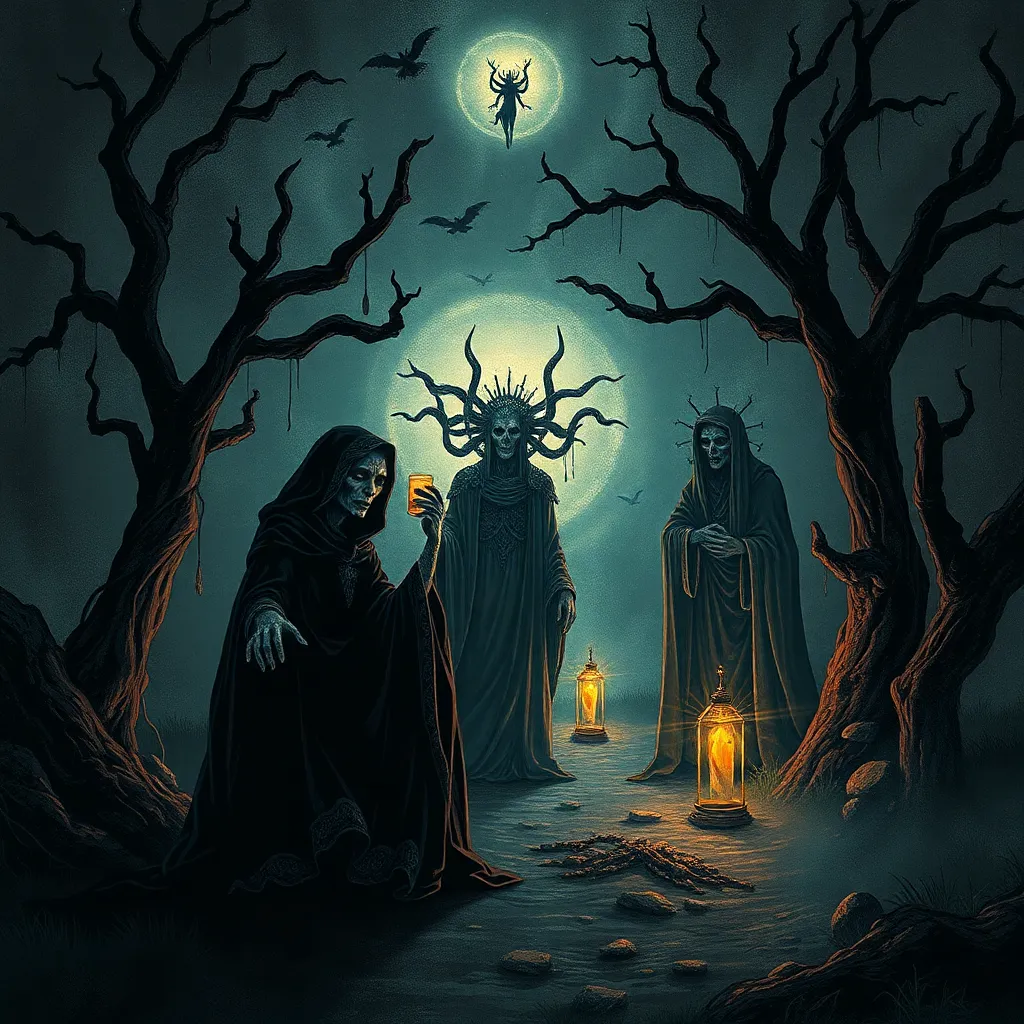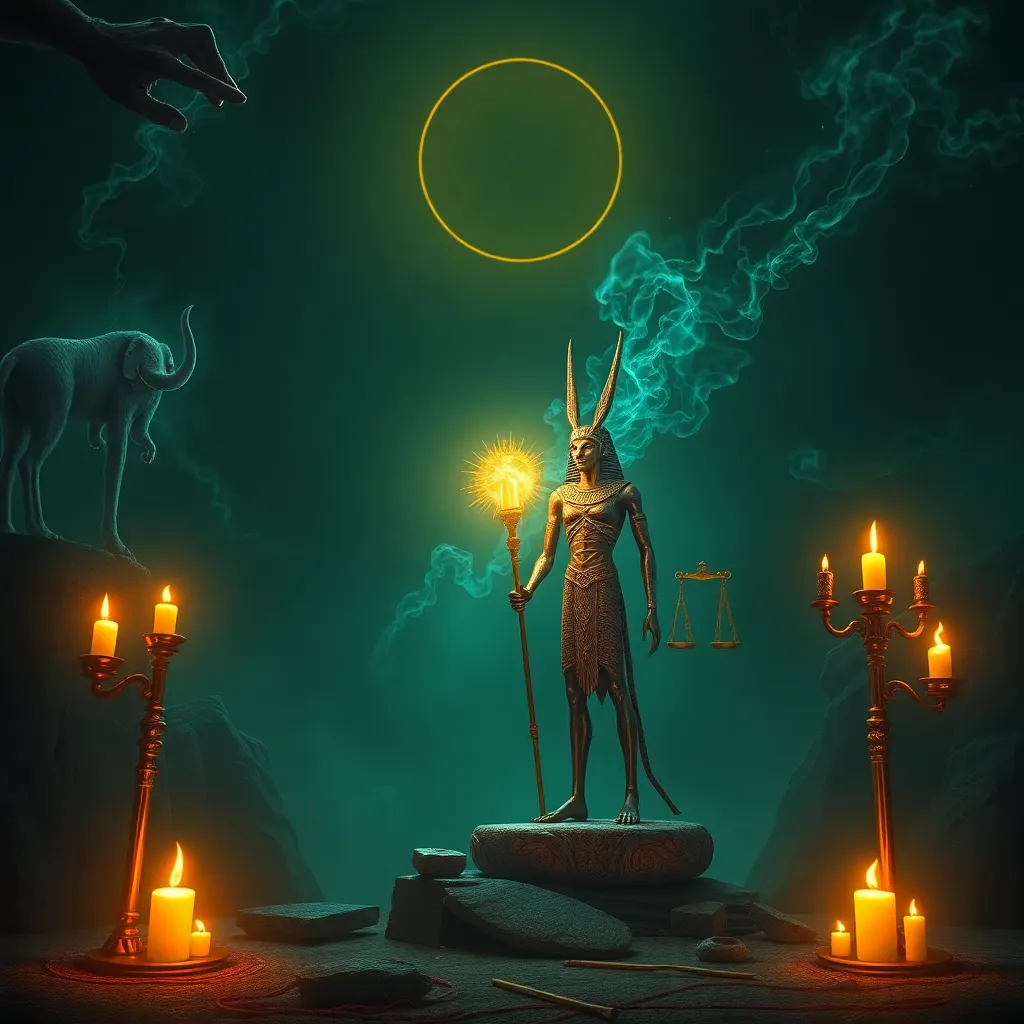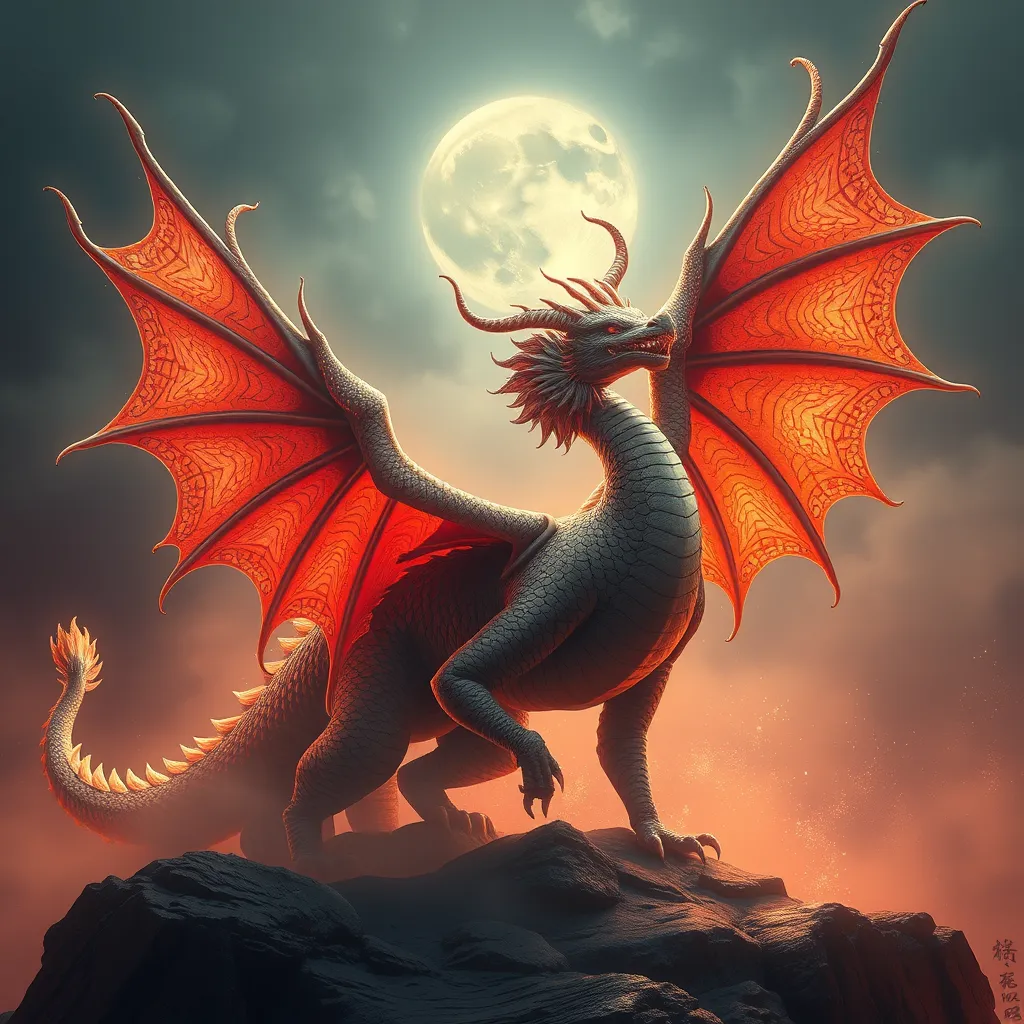The Dybbuk in African Folklore: A Tale of Lost Souls and Spirits
I. Introduction
The Dybbuk, a term rooted in Jewish folklore, refers to a wandering spirit that clings to the living, often possessing individuals and creating chaos in their lives. This concept has transcended its origins and found resonance in various cultures, including those in Africa. The significance of the Dybbuk in folklore lies in its exploration of themes surrounding loss, grief, and the unresolved issues that haunt individuals and communities.
This article aims to delve into the Dybbuk’s role within African folklore, examining its historical context, cultural interpretations, and representation in modern literature and society. Through this exploration, we will uncover the profound impact of the Dybbuk as a symbol of lost souls and the ways it reflects the rich tapestry of African cultural traditions.
II. Historical Context of the Dybbuk Concept
A. Origins of the Dybbuk in Jewish folklore
The Dybbuk originates from Jewish mystical traditions, particularly Kabbalah, where it is believed to be the dislocated soul of a deceased person that seeks to inhabit the body of a living host. The narrative of the Dybbuk often revolves around themes of unfulfilled obligations, unresolved grievances, and the need for redemption.
B. Influence of cultural exchange between Jewish and African traditions
As Jewish communities settled in various parts of Africa, particularly in North Africa and Ethiopia, there was a significant cultural exchange that influenced local traditions. The interaction between Jewish and African folklore led to the adaptation of the Dybbuk narrative, infusing it with local beliefs and customs.
C. Evolution of the Dybbuk narrative in African contexts
Over time, the Dybbuk has evolved within African contexts, blending with indigenous beliefs about spirits and the afterlife. This adaptation has resulted in a unique interpretation of the Dybbuk that resonates with the experiences and spiritual understandings of various African cultures.
III. The Dybbuk as a Symbol of Lost Souls
A. Exploration of the concept of lost souls in African cultures
In many African cultures, the concept of lost souls is prevalent, often associated with ancestors who have not found peace due to unresolved issues. These souls may wander, seeking closure or retribution. This notion parallels the Dybbuk’s characteristics, highlighting a shared understanding of spiritual unrest.
B. Comparisons to the Dybbuk’s role in Jewish traditions
Similar to its role in Jewish traditions, the Dybbuk in African contexts embodies the themes of grief, loss, and the consequences of unresolved matters. Both narratives emphasize the importance of honoring the deceased and addressing the emotional and spiritual needs of the living.
C. Common themes of grief and unresolved issues
- Grief as a universal experience
- The necessity of closure for both the living and the deceased
- The role of community in addressing loss
IV. The Dybbuk in African Folktales
A. Notable stories and variations across different African cultures
Across Africa, various folktales feature spirits akin to the Dybbuk, each with unique narratives and lessons. For instance, in some West African cultures, tales of wandering spirits emphasize the need for communal rituals to help lost souls find peace.
B. Analysis of character representations and their significance
Characters embodying the Dybbuk often represent the struggles of both the living and the dead. They may be portrayed as tragic figures, reflecting the pain of their unresolved issues. This representation serves to highlight the broader themes of identity, community, and the human experience.
C. Role of oral tradition in preserving Dybbuk narratives
Oral tradition plays a crucial role in preserving Dybbuk narratives within African cultures. Storytelling not only serves as a means of entertainment but also as a vehicle for cultural transmission, allowing communities to share their beliefs about the spirit world and the importance of addressing grief.
V. Cultural Interpretations of the Dybbuk
A. Differences in interpretations among various African ethnic groups
Interpretations of the Dybbuk vary widely among different African ethnic groups. For instance, the Akan people of Ghana may view similar spirits as ancestors seeking recognition, while the Yoruba might interpret them as trickster figures that require appeasement through rituals.
B. The Dybbuk’s connection to ancestor worship and spirituality
The Dybbuk is often linked to ancestor worship, a fundamental aspect of many African spiritual practices. This connection reinforces the idea that the dead continue to influence the living and that honoring them is essential for maintaining harmony within the community.
C. The impact of colonialism and modernity on these interpretations
Colonialism and modernity have significantly impacted the interpretation of the Dybbuk and similar spirits. As communities navigate the complexities of modern life, traditional beliefs may be challenged or adapted, leading to new understandings of the spirit world.
VI. The Dybbuk and Modern African Literature
A. Representation of the Dybbuk in contemporary African literature
In contemporary African literature, the Dybbuk motif has been explored by various authors, reflecting themes of identity, loss, and the quest for redemption. These narratives often weave together personal and collective histories, emphasizing the enduring relevance of the Dybbuk.
B. Analysis of themes related to identity, loss, and redemption
Modern literature often examines how characters grapple with their past, seeking to reconcile their identities in the face of loss. The Dybbuk serves as a powerful symbol of this struggle, representing the ghosts of history that linger in the present.
C. Notable authors and works featuring the Dybbuk motif
- Chinua Achebe – explores themes of cultural clash and identity
- Buchi Emecheta – addresses the complexities of womanhood and loss
- Ngũgĩ wa Thiong’o – examines the impact of colonialism on identity and memory
VII. The Dybbuk in Contemporary Society
A. The Dybbuk’s relevance in modern African cultural practices
In contemporary African societies, the Dybbuk remains relevant as a figure that embodies the struggles of individuals and communities. Its presence in cultural practices serves as a reminder of the importance of addressing grief and honoring the deceased.
B. Influence on art, music, and performance
The Dybbuk has influenced various forms of artistic expression, including music, dance, and theater. Artists often draw upon the Dybbuk narrative to explore themes of loss, identity, and the spiritual connections that bind communities.
C. The role of the Dybbuk in addressing social issues and healing
As societies confront contemporary challenges, the Dybbuk serves as a vehicle for addressing social issues, providing a means of healing through storytelling and communal rituals. By engaging with the Dybbuk narrative, communities can process their collective grief and seek paths toward reconciliation.
VIII. Conclusion
A. Summary of key points discussed
This article has explored the Dybbuk’s significance in African folklore, tracing its historical context, cultural interpretations, and representations in modern literature and society. The Dybbuk serves as a profound symbol of lost souls, reflecting the universal themes of grief, loss, and the pursuit of closure.
B. Reflection on the enduring legacy of the Dybbuk in African folklore
The enduring legacy of the Dybbuk in African folklore highlights the interconnectedness of cultures and the ways in which spiritual narratives evolve over time. As communities continue to grapple with their histories and identities, the Dybbuk remains a vital element of their storytelling traditions.
C. Call to further explore the intersections of culture, spirituality, and storytelling
In conclusion, the Dybbuk invites us to further explore the rich intersections of culture, spirituality, and storytelling. By engaging with these narratives, we can gain deeper insights into the human experience and the ways we navigate the complexities of life, loss, and the spirit world.



